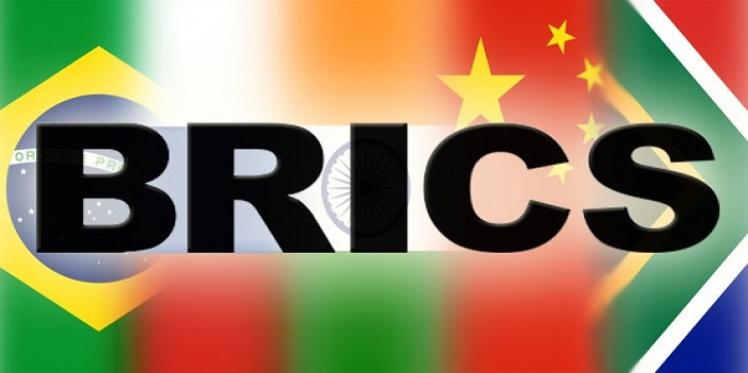Why is Pakistan a misfit for BRICS?

In its quest to challenge Western hegemony in global governance and make itself more representative of the Global South, BRICS has begun to expand itself, including more new member nations.
The expansion has led to a formal request by Pakistan to join BRICS in late 2023. This has led to discourse and speculations by scholars, diplomats, journalists, and International Relations experts about the readiness of Pakistan and the willingness of BRICS to do so without hampering the established objectives of BRICS.
Though Pakistan’s leadership believes that Pakistan has a role to play in furthering international cooperation and inclusive multilateralism when it joins BRICS[1], in reality, the situation of Pakistan is far from ideal to make it any effective to do so.
Many experts in Pakistan itself are divided on whether Pakistan should aspire to join BRICS. There are several domestic and international factors that make Pakistan a miss fit for BRICS.
First, let us broadly revisit the goals of BRICS. The group aims to reform multilateralism, democratize international relations, and provide greater voice and representation for emerging economies in the Global South. As re-iterated often, the founding members of the organization comprised 41% of the global population and 24% of the global GDP, counterbalancing the Western institutions and exhibiting the idea of a multipolar world. With all the BRICS economies being quite stable, the expansion of BRICS into BRICS Plus makes it more representative of the emerging economies (EMEs). The group has a set of joint priorities, including resolving regional problems, tackling Bretton Woods Institutions, and establishing the BRICS Interbank Cooperation Mechanism. The group has also established two new financial institutions: the New Development Bank (NDB) and the Contingent Reserve Arrangement (CRA). CRA has a capital of more than USD 100 billion to help member states withstand any short-term balance of payment crises.
There is a set of domestic reasons that make Pakistan’s candidature less than optimal for BRICS membership. First, given the current economic crisis in Pakistan, the economy is heavily dependent on Bretton Woods Institutions, as well as the US. There has been a recent influx of USD 3 billion of IMF loans in Pakistan in the wake of its worst economic crisis since independence. Moreover, Pakistan has also shown its intentions to lean towards the IMF for more financial help in the future[2]. Thus, Pakistan’s dependence on the West can be seen as misaligning with the broader goals of the group.
Second, in terms of economic prowess, Pakistan has been lagging behind for the last few years as a developing country, owing to its prolonged political stability and worsening economic conditions[3]. Pakistan’s economy is not substantial in terms of exports or contribution to the global economy. Rather, the perpetual instability of the economy would make it a liability on other members, reducing their legitimacy and relevance for the rest of the world. Its fledgling economy does not fit into a group of top and emerging economies of the global south included in the BRICS. The membership typically requires a certain level of economic and political stability, as well as a substantial contribution to the global economy. Pakistan may not currently meet these criteria, making its admission premature or inappropriate at this time.
Third, given the heavy debt dependence of its economy and the continuous need for financial aid, Pakistan sees BRICS membership as an opportunity to get its hands on more funds by accessing the CRA comparatively lenient loan conditions of NDB. This would create a situation of moral hazard for BRICS members by limiting the incentive of Islamabad to ameliorate its economic situation as it would have access to easy funds[4].
Fourth, Pakistan’s image as a terror-sponsor state underplays its candidature in contrast to other countries that may want to join BRICS. Besides, the regular political instability, including military coups and civil unrest in one of its member countries, would undermine the cohesion and decision-making process of BRICS, hindering its ability to achieve its objectives.
Fifth, many skeptics view Pakistan’s strained relations with India as the most significant hurdle in its membership. This seems far from the truth. Indian Prime Minister Modi has supported the BRICS expansion, and New Delhi has not officially raised a brow about its inclusion. Thus, the claim that India is a hurdle to Pakistan joining BRICS Plus is currently baseless. However, even if it is true, we need to understand the internal dichotomies and international perception of Pakistan, as mentioned above, which are much stronger and more concerning, making Pakistan less palatable for other BRICS members.
One such concern is rising Iran-Pakistan tensions in the wake of Iran’s direct on the militant group in the Pakistani province of Baluchistan, followed by retaliation by Pakistan[5] early this year. Such geopolitical development makes Pakistan’s candidature even weaker, given that Iran is already a member of BRICS Plus.
Lastly, BRICS would be ineffective if any of its members were sick, and it would find itself underserving its agenda of economic cooperation and multilateralism. BRICS will be as strong a voice as its weakest member. And in this case, the inclusion of Pakistan would be an act of disarray[6].
Thus, the focus currently should be to further bolster the already impressive economic power of the group and present itself as an important alternative in deciding the economic and political world order. Pakistan, with its excessive dependence on the West and its own sub-optimal situation, doesn’t add any edge to the goals of the group, making it a major misfit for now.
[1] https://www.aljazeera.com/news/2023/11/24/pakistan-seeks-brics-membership-despite-india-roadblock
[2] https://www.himalmag.com/politics/pakistan-brics-membership-us-relations-foreign-policy
[3] https://www.arabnews.pk/node/2415801
[4] https://moderndiplomacy.eu/2023/10/01/why-brics-matters-for-pakistan/
[5] https://www.chathamhouse.org/2024/01/iran-pakistan-tensions-why-further-escalation-unlikely
[6] https://www.business-standard.com/world-news/amid-economic-crisis-pakistan-expresses-interest-in-joining-brics-report-123061000412_1.html






